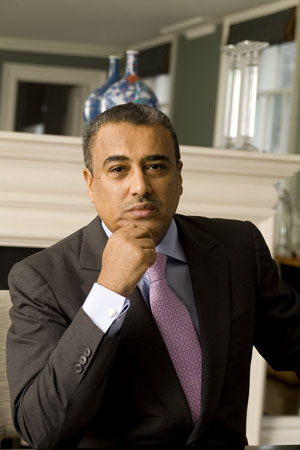A Gibson Dunn & Crutcher partner has admitted "I got it spectacularly wrong" after presenting falsified evidence to the High Court which had previously been used to convict a man of a grenade
attack.
Partner Peter Gray was instructed by the Djibouti government in its president's long-running feud with opposition leader Abdourahman Boreh, who lives in exile in Belgravia and is known as 'Africa's richest businessman'. Boreh was sentenced by the Djibouti courts to 15 years for ordering a grenade strike on a Djibouti supermarket on the back of phone transcripts which incriminated him because of the stated dates of his calls. Gray, who is based in the firm's Dubai office, used the same evidence to win a freezing order in the UK in respect of £65m of Boreh's assets.
However the dates of the calls have been exposed as bogus, and Gray has been cross-examined as part of Boreh's application to overturn the freezing order. Gray has told the High Court that he did not knowingly present it with false evidence, claiming that while he was aware the dates were wrong at the time of the case, the correctly-dated transcripts "should have been in the file" which Gibson Dunn handed the court. In a mea culpa reported by The Lawyer, he also admitted that his strategy with regards to the transcripts “hadn’t worked out. Very much not worked out. It went spectacularly wrong. I got it spectacularly wrong”.
A spokeswoman for Gibson Dunn said the firm "holds itself to the highest standards of integrity and professional and ethical standards in the discharge of duties to our clients and the court" and is "carefully evaluating" the evidence presented at the hearing.
Tip Off ROF
Partner Peter Gray was instructed by the Djibouti government in its president's long-running feud with opposition leader Abdourahman Boreh, who lives in exile in Belgravia and is known as 'Africa's richest businessman'. Boreh was sentenced by the Djibouti courts to 15 years for ordering a grenade strike on a Djibouti supermarket on the back of phone transcripts which incriminated him because of the stated dates of his calls. Gray, who is based in the firm's Dubai office, used the same evidence to win a freezing order in the UK in respect of £65m of Boreh's assets.
 |
Boreh considers making a Djibouti call |
However the dates of the calls have been exposed as bogus, and Gray has been cross-examined as part of Boreh's application to overturn the freezing order. Gray has told the High Court that he did not knowingly present it with false evidence, claiming that while he was aware the dates were wrong at the time of the case, the correctly-dated transcripts "should have been in the file" which Gibson Dunn handed the court. In a mea culpa reported by The Lawyer, he also admitted that his strategy with regards to the transcripts “hadn’t worked out. Very much not worked out. It went spectacularly wrong. I got it spectacularly wrong”.
A spokeswoman for Gibson Dunn said the firm "holds itself to the highest standards of integrity and professional and ethical standards in the discharge of duties to our clients and the court" and is "carefully evaluating" the evidence presented at the hearing.







